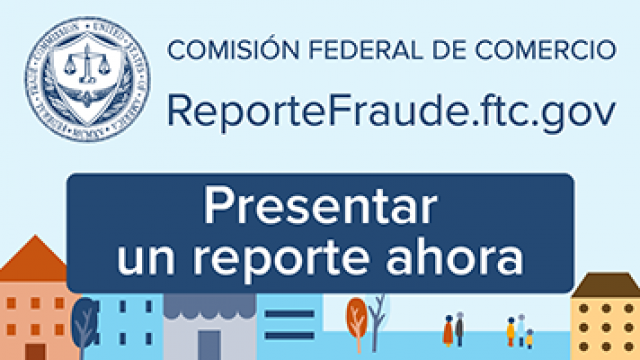Learn about the latest scams, and get advice to help you avoid, report, and recover from them.
Displaying 121 - 140 of 649
Consumer Alert
Military families move regularly, sometimes every two to three years. So you may find yourself checking out new digs as you plan a move to another duty station. That’s when you could run into a rental scam, which can be hard to spot, but here are some clues.
Consumer Alert
Most people can probably agree that there are few things more frustrating than airline delays or cancellations that leave you stranded at the airport. Whether the issues are the result of an unprecedented event like the Crowdstrike glitch that grounded thousands of flights worldwide, or more common disturbances like weather delays, desperate travelers often turn to social media for help from the airlines. Opportunistic scammers know this, and they’re lurking behind fake accounts trying to steal travelers’ information.
Consumer Alert
You might be a spouse who’s PCS’d to a new location or a servicemember getting ready to retire — and you’re probably eyeing new career possibilities. You know where to look for a job, but do you know how to recognize the signs of a job scam?
Consumer Alert
Investment scammers claim you’ll get big returns investing in a hot new money-making “opportunity” — maybe something like cryptocurrency. Some scammers say you’ll likely make a lot of money if you follow their proven system or method. But will you?
Consumer Alert
If you live in the path of Hurricane Beryl as it moved through Texas, recovering is your number one priority right now. Unfortunately, scammers take advantage of situations like these to strike. Here's some information to help you spot and avoid the scams as you do your best to recover.
Consumer Alert
People are getting letters in the mail from a law firm saying that one of their clients has died and they’re looking for the heir. You are, they say, that heir! (Spoiler alert: you’re not.) The letter goes on to explain their offer: they want to split the proceeds between you, some charities, and their law firm. But what’s really going on?
Consumer Alert
Do you need to apply for or renew your passport? If you search online, the top results might show official-looking websites that say they can renew or get you a passport. Some of these websites are private companies that charge you for services that are free on the U.S. Department of State website…while others are scammers trying to take your money and personal information.
Consumer Alert
July is Military Consumer Month, so we’re deploying advice you can use. No matter what stage of military life you’re going through, you could encounter an imposter scam: someone pretending to be your bank’s fraud department, the government, a relative in distress, a well-known business, or a technical support expert. Want to protect yourself and the people you care about? Let the FTC help.
Consumer Alert
When you want to know what’s happening in housing, you go to the experts. That’s why the FTC joined renters, renters’ advocates, and researchers in Atlanta to hear about issues affecting renters. They told us that the rise of institutional investors and corporate landlords since the financial crisis has contributed to rising rents, hidden junk fees, issues with online portals, and predatory lease-to-own schemes. Here are some takeaways from housing advocates and renters.
Consumer Alert
Wondering if you need an international license to drive in a country you’re visiting? Every country has its own rules for visitors who want to drive. In some, like Canada, your U.S. driver’s license is all you need. Other countries require you to get an International Driver’s Permit (IDP). Scammers try to confuse you with fake IDPs and websites that not only take your money and give you nothing but can also cause you trouble abroad.
Consumer Alert
Here’s a new scam spotted on social media: appointment setting jobs. They claim you can work from home and make big money. But just what does an appointment setter do? And how can you tell the difference between a legit job offer and a scam?
Consumer Alert
Maybe you want to try out a product for a little while before you make a long-term decision. So, you sign up for a monthly subscription plan. Everything is fine until you want to cancel and it turns out to be a yearly subscription with monthly payments. Surprise! That’s what the FTC says happened to people who signed up for monthly subscriptions with Adobe.
Consumer Alert
Scammers pretending to be from the government tell convincing stories to steal your money or personal information. But now they’re taking a new, layered approach — and here are some clues to spot it.
Consumer Alert
No one thinks their online love interest is going to scam them, but scammers are good at what they do. They establish an emotional connection with you so you’re more likely to believe that they’re an expert in cryptocurrency investing, for example. But that online love interest is a scammer. People have lost tens of thousands ― sometimes millions — of dollars to romance scammers.
Consumer Alert
Weather forecasters are predicting an active hurricane season, but if you live in large parts of the country — including those hit by tornadoes over Memorial Day Weekend — you’ve probably noticed more active storms of all types. To get started preparing for hurricane season or any storm, while avoiding scams, check ftc.gov/WeatherEmergencies for new information to help you spot, avoid, and report scams as you prepare for, deal with, and recover from extreme weather and natural disasters.
Consumer Alert
The phone rings. Your caller ID says it’s the Social Security Administration. You hesitate. You’re not expecting a call from them, and you’ve heard about impersonation scams. But something inside you makes you pick up. And everything you’re about to hear is designed to scare you into doing whatever the caller says.
Consumer Alert
When you go through a toll, you know you’ll need to pay a fee to use that road or bridge. But scammers are targeting drivers with text messages pretending to be from the tolling agency collecting “overdue toll charges.” Here’s what to know about this text scam.
Consumer Alert
Another day, another round of spam texts and emails trying to sell you things. At best, spam is annoying. At worst, it’s pushing scams or trying to install malware on your device. If you’re tired of getting spam, there are some ways to help.
Consumer Alert
Just as people in Nebraska, Iowa, Oklahoma, and other Midwestern states are reeling from the catastrophic damage caused by tornadoes and other severe weather, scammers are rolling in. They use all kinds of stories to try to trick not just those doing their best to recover, but also anyone who tries to help. The best way to steer clear of these disaster-chasing scammers? Know what their tactics have in common.
Consumer Alert
If you’re paying a medical, utility, or other bill online, you probably expect to wind up on the company’s website. What might you not expect? An impersonator tricking you into paying them instead. But that’s what the FTC says a company called Doxo did. Here’s what you need to know.
Displaying 121 - 140 of 649



